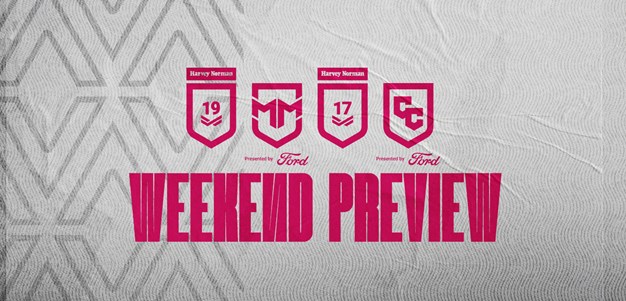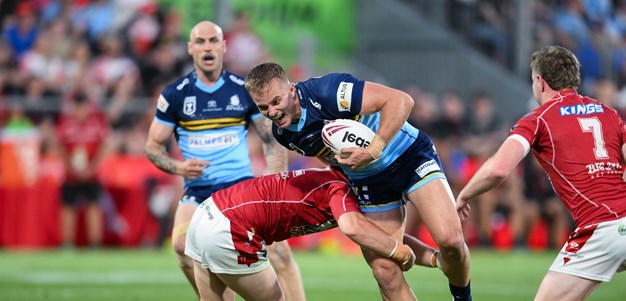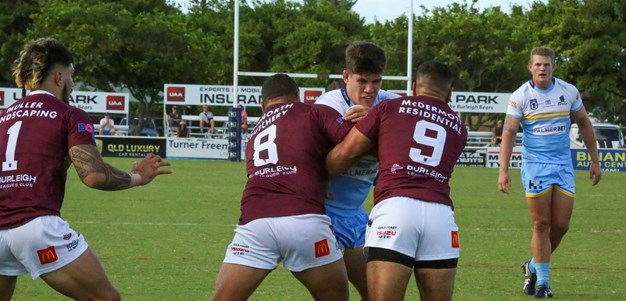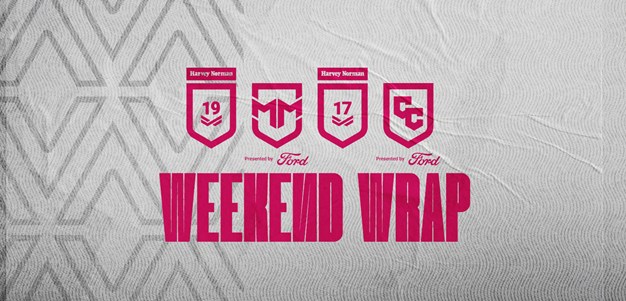How about we stop the finger-pointing, stop the blame game and stop knit-picking every referee's error and all start taking ownership of this great game we love called rugby league.
Is the game in crisis?
Is the game in danger of dying a swift and painful death?
I don't think so.
But it does have some problems, problems which need to be proactively addressed.
I know the refereeing has been contentious at NRL level this season. In fact, it's been poor at times.
I know the game's multi-million dollar cure-all we refer to as The Bunker – created specifically to eradicate bad calls - has come up with its own errors, which have infuriated fans.

Frustrated fans though are not just unhappy with the officiating of the game.
They're generally disappointed with the product at the NRL level as a whole, especially the entertainment factor which seems to have been eroded by so many stoppages in 80 minutes.
Let's face it, the fatigue factor which once allowed rugby league's smaller attacking stars to shine when the bigger players tired, is a thing of the past.
Over-generous scrum and drop-out clocks, stoppages for penalties and for treatment of minor injuries and countless video reviews by The Bunker in search of perfection is what is killing the game.
Rugby league will never achieve perfection and, the more stoppages technology creates, the worse the product gets.
The big players, the front-rowers and other forwards, now have too much time to recover during these stoppages.
They don't tire or fatigue and, as a result, the gaps don't open up for the attack like they once did.
Rugby league is a game built heavily on confrontation, contact, and attrition.

It is not necessarily about producing a faster game, rather a game which is quick and low on stoppages.
Like State of Origin.
But you can't referee every NRL club game with the same leniency as players receive in an Origin because it would be so quick every week, players would not see out the season.
Something has to be done to brighten up the game, to allow the superstar entertainers like Kalyn Ponga, Latrell Mitchell, Nathan Cleary, Valentine Holmes, Josh Addo-Carr, Cameron Munster and others to thrill fans and to keep them coming back.
Call me a dinosaur, plenty of people have.
But in my opinion rugby league needs to go back to the basics, a tactic a lot of coaches use when their team is going poorly.
These are a few suggestions - some which may have been floated by others - which are worth some thought:
- The stripping rule is too easy to abuse. Players should be more accountable for protecting the football. As it is now players are milking stripping penalties while genuine strips are not always being penalised. It's a lottery at times, with fans holding their breath waiting to see which way the referee goes.
- Reduce the interchange by one or two players to help add a fatigue factor.
- Return to one referee and give him free rein to control the game.
- Cut The Bunker's role back to any in-goal eagle-eye decisions, leaving the decisions in the field-of-play to the referee. He will make the odd mistake; rugby league is a game where everyone makes mistake, but they usually even out in the wash.
- Players with minor injuries, head cuts, corks, cramps and such should be taken to the sidelines for treatment, not hold up the game.
- We have a scrum and drop-out clocks and now we need a sin-bin clock for players who amble off the playing field at snail's pace.
If the sin-binned player is not off the field in 30 seconds the attacking side can march a further 10 metres upfield, minimum.
And finally, players and coaches have to take some ownership and accept some responsibility by playing the game within the spirit of which is meant to be played and stop pushing the boundaries and patience of referees to the extreme.
Unfortunately, a disturbing culture has crept into rugby league in the past decade, probably longer than that, which is the root of a lot of it problems.
Rather than embrace some rule changes, coaches devise ways of getting around them or lessening their impact, even if it means giving away penalties or even playing a man short for 10 minutes, because, without the fatigue factor, they know than can defend for longer periods on their try line.

Henry Perenara's off-the-cuff decision last weekend to send a player to the sideline for treatment when he was deliberately trying to slow down the game was Barry Gomersall-like
The late North Queensland referee, despised by NSW fans, used to referee the game on the run, often ignoring the old-fashion fights, to keep the game flowing.
If the NRL had eight Billy Harrigans, it would not be faced with this problem.

But they don't.
Harrigan was larger-than-life, he had a profile as big or bigger than some of the game's stars he refereed, and he performed like them with the whistle.
Confident, assured, strong and most of all, correct most of the time, he was the game's best whistle-bLower, at least for the past three or four decades.
In my mind, the game will not start winning back fans until everyone buys into making it a better and more exciting product than it is at the moment.






